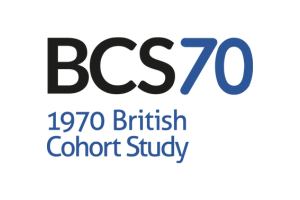1970 British Cohort Study
Summary of cohort
The 1970 British Cohort Study (BCS70) is the third birth cohort study established in Britain.
The BCS70 began as the British Births Survey, designed to examine the causes of neonatal morbidity and compare results with those of NSHD [66]. The target sample included just over 17,000 babies born in England, Scotland, Wales and Northern Ireland in one week in April 1970 [67].
Since the initial birth survey there have been ten further major data collections:
- 1975 (5 years)
- 1980 (10 years)
- 1986 (16 years)
- 1996 (26 years)
- 1999-2000 (29-30 years)
- 2004 (age 34 years)
- 2012 (age 42 years)
- 2016 (age 46 years)
- 2021 (age 52 years, still in the field at the time of writing).
Data collection on sub-samples has also been conducted at 22 and 42 months and 21 years [66-68]. During the COVID-19 pandemic, the BCS70 was included in data collection across the British birth cohorts along with NSHD, NCDS, and MCS. A web-based interview was carried out in May 2020 (Wave 1), September-October 2020 (Wave 2), and February-March 2021 (Wave 3), when BCS70 members were aged 50 years.
Cohort members who were born in Northern Ireland were included in the birth survey but dropped from later sweeps. The sample was augmented to include immigrants who were born in the same week in April 1970 at ages 5 years (n=68), 10 years (n=270), 16 years (n=57) and 26 years (n=8). It is worth noting that the achieved sample sizes in the age 16 years survey (1986) and the age 26 years survey (1996) were hindered by, respectively, industrial action by teachers and the use of a postal survey with limited tracing [66, 68].
Information from this study has come from a number of sources (e.g. participants, parents, schools, medical records, doctors) and a variety of instruments (e.g. interview, self-completion, medical records, diaries). Although extensive information has been gathered, the ad hoc funding during the 1980s and 1990s made it difficult to develop consistent content and timing for each of the follow-ups [66].

